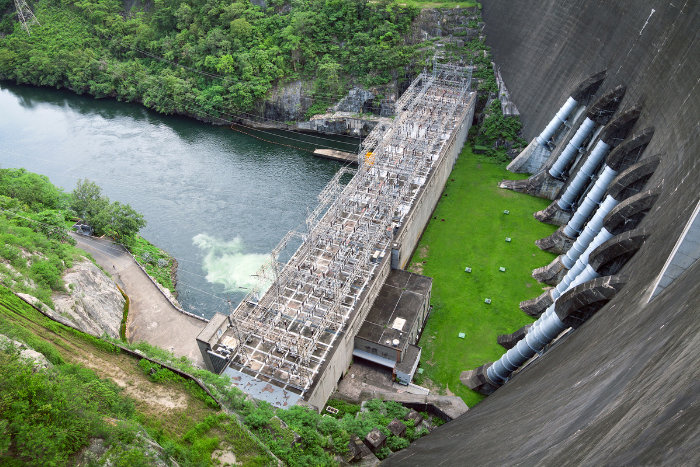The Centre did away with rules that require prior forest clearance for development project surveys involving drilling and felling of up to 100 trees for hydro projects in forest areas. The statutory body, the Forest Advisory Committee (FAC), exempted hydel and other development project surveys from taking permission saying that such surveys “are of relatively lesser intensity and do not result in any permanent change in the forest land use”, the HT reported.
“Such preliminary drilling is crucial for project design, preparation of detailed project report and estimating the financial provisions of the proposed development project,” the newspaper cited the official minutes adding the FAC considered the matter following a request by the Union power ministry. The power ministry secretary on May 28 wrote to the MoEFCC, requesting that the dispensation provided to mining projects for drilling 25 bore holes and felling of 100 trees be extended to hydro and pump storage projects also.
Eco-sensitive Char Dham road near China border to be 10 m wide
The last 150 km-long stretch of Char Dham road, which will pass through the Bhagirathi Eco-Sensitive Zone, will have to adhere to a minimum width of 10m, Union transport minister Nitin Gadkari said. He said as it connects with the India-China border, the road needs to be wide enough to move defence equipment. Gadkari added the stretch is landslide-prone and efforts are being made to compensate for tree loss for the Char Dham route, HT reported.
The newspaper spoke to experts who said the stretch in the Bhagirathi Eco Sensitive Zone is 100 km and not 150 km long. “For defence needs, it is important to have disaster-resilient roads. It is shocking that the government calls this kind of excessively wide road strategic when similarly strategic roads are preventing strategic movements in other stretches of the Char Dham. The only strategy should be to prevent disasters on border connecting roads, not to make them disaster-prone instead,” said Mallika Bhanot, environmentalist and member, Ganga Ahvaan.
No new permanent structures allowed in eco-sensitive zones as per SC order: Govt to Parliament
Government told Parliament no new permanent structure shall be permitted in eco-sensitive zones of forest reserve area and forest lands as per a Supreme Court order. The HT reported that the government’s stance is significant “because the standing committee for the National Wildlife Board and the Forest Advisory Committee get several proposals to locate various projects in parts of eco-sensitive zones.”
The Centre was responding to queries about the directions of the Supreme Court and National Green Tribunal (NGT), imposing a ban on the construction of hotels, resorts etc., inside buffer zones of any forest reserve area, forest land etc. along with the catchment and submergence areas of lakes.
Fossil fuel companies behind “massive disinformation campaign” against green energy shift
The UN alerted countries that climate is ”dropping down the list of priorities of leaders”
because fossil fuel companies are running “a massive mis- and disinformation campaign” so that countries will slow down the adoption of renewable energy and the speed with which they “transition away” from a carbon-intensive economy, the Guardian reported.
The fossil fuel companies are stoking talk of a global “backlash” against climate action in an effort to persuade world leaders to delay emissions-cutting policies. The perception among many political observers of a rejection of climate policies was a result of this campaign, rather than reflecting the reality of what people think, Selwin Hart, the assistant secretary general of the UN, told the newspaper.
About The Author
You may also like
India says it won’t rely on global climate or pollution rankings to shape policies
COP30 Kicks Off With Hard Talks on Money, Adaptation and Global South Leadership
COP30 should be the COP of adaptation, says environment minister Bhupendra Yadav
India to release updated climate plan ‘during, or just ahead’ of Brazil COP in Nov
SCO summit concludes: ‘Energy diplomacy’ of China, Russia, India

